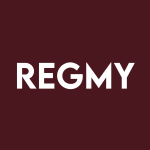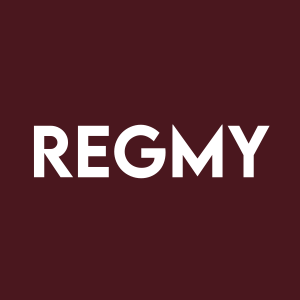Welcome to our dedicated page for Remegen news (Ticker: REGMY), a resource for investors and traders seeking the latest updates and insights on Remegen stock.
RemeGen Co., Ltd. (REGMY) is a global biotechnology innovator developing advanced therapies for autoimmune disorders and oncology. This page aggregates official announcements, clinical trial updates, and strategic developments from the company.
Investors and researchers will find curated news about RemeGen's fusion protein therapies and antibody-drug conjugates (ADCs), including regulatory milestones for candidates like telitacicept and Disitamab Vedotin. Content spans trial phase results, partnership agreements, and market expansion initiatives.
Key updates include progress on B-cell modulation therapies for autoimmune conditions and targeted ADC treatments for solid tumors. All information is sourced directly from company filings and verified channels to ensure accuracy.
Bookmark this page for streamlined access to RemeGen's latest developments in precision medicine and biopharmaceutical innovation. Check regularly for updates on therapies addressing primary Sjögren's syndrome, myasthenia gravis, and HER2-expressing cancers.
RemeGen (REGMY) announced that its 48-week open-label extension data from the China Phase III clinical study of telitacicept for generalized myasthenia gravis (gMG) has been selected for oral presentation at the 2025 AANEM Annual Meeting on October 29, 2025.
The previously presented 24-week data showed exceptional results with 98.1% of patients achieving ≥3 points improvement in MG-ADL score and 87% achieving ≥5 points improvement in QMG score, demonstrating the highest MG-ADL response rate among Phase III gMG treatments. In June 2025, RemeGen out-licensed telitacicept to Vor Bio (VOR), which is now conducting global Phase III trials across multiple regions.
RemeGen (REGMY) has entered into an exclusive licensing agreement with Santen Pharmaceutical for RC28-E, a VEGF/FGF dual-target fusion protein drug for ocular neovascular diseases. Under the agreement, Santen gains exclusive rights to develop, manufacture, and commercialize RC28-E in Greater China and seven Asian countries.
The deal includes an upfront payment of RMB 250 million, potential development and regulatory milestone payments of up to RMB 520 million, and sales milestone payments up to RMB 525 million, plus tiered royalties. Phase II clinical trials for diabetic macular edema (DME) showed significant improvements in visual acuity and reduced central subfield thickness. RemeGen plans to submit BLA applications for DME in H2 2025 and wet AMD in mid-2026.
RemeGen (REGMY) announced that its novel drug Telitacicept successfully met the primary endpoint in its Phase III clinical trial for primary Sjögren's syndrome (pSS) treatment in China. The drug, a first-in-class BLyS/APRIL dual-target fusion protein, demonstrated sustainable efficacy in improving clinical symptoms while maintaining a favorable safety profile.
The multicenter, randomized, double-blind, placebo-controlled study measured changes in ESSDAI scores at Week 24. Telitacicept targets a significant market, with 4-10 million potential patients in China alone, where the prevalence rate is 0.3% to 0.7%. The company plans to submit a Biologics License Application to China's NMPA and has already received Fast Track designation from the US FDA for global trials.
RemeGen (NASDAQ:REGMY) has received FDA clearance for Phase II clinical trials of RC148, its independently-developed bispecific antibody targeting PD-1 and VEGF, for treating multiple advanced malignant solid tumors in the United States.
RC148 is currently undergoing clinical trials in China as both monotherapy and combination therapy for advanced solid tumor treatment. This FDA clearance represents a significant milestone in RC148's global development journey.
RemeGen (REGMY) announced significant positive results from its Phase 3 clinical trial of disitamab vedotin (DV) in combination with PD-1 inhibitor toripalimab. The study, evaluating the treatment as a first-line therapy for HER2-expressing locally advanced or metastatic urothelial carcinoma (la/mUC), successfully met its primary endpoints of progression-free survival (PFS) and overall survival (OS).
The trial, involving 484 patients across 74 sites in China, demonstrated statistically significant improvements in both PFS and OS compared to standard chemotherapy, regardless of cisplatin eligibility or HER2 expression levels. The treatment showed a manageable safety profile with tolerable adverse reactions. RemeGen plans to file a Biologic License Application (BLA) with China's NMPA, with detailed data to be presented at upcoming international conferences.
RemeGen (REGMY) has announced breakthrough Phase 3 clinical trial results for Telitacicept in treating generalized myasthenia gravis (gMG). The trial, presented at the American Academy of Neurology Annual Meeting 2025, showed remarkable efficacy with 98.1% of patients in the Telitacicept 240 mg group achieving ≥3-point reduction in MG-ADL score and 87% showing ≥5-point reduction in QMG score at Week 24.
The multicenter, randomized, double-blind study involved 114 gMG patients, demonstrating significant improvements in clinical outcomes with a favorable safety profile. At Week 24, the Telitacicept group showed MG-ADL score changes of -5.74 versus -0.91 in the placebo group. The drug's Biologics License Application has been accepted by China's regulatory authorities, with approval expected in Q2 2025.
RemeGen presented promising Phase II clinical trial results for Disitamab Vedotin (DV) combined with Toripalimab in treating HER2-expressing muscle-invasive bladder cancer (MIBC) at ASCO GU 2025. The study (NCT05297552) showed a pathological complete response (pCR) rate of 63.6%, nearly double the traditional neoadjuvant chemotherapies (36%-42%).
The trial included 47 patients, with 33 undergoing radical cystectomy. Key findings include: 75.8% pathological response rate, 85.7% pCR rate in T2N0 stage patients, and 84.6% pCR rate in HER2 IHC 3+ patients. The 12-month event-free survival rate was 92.5%, with 18-month rate at 85.9%. Grade 3 or higher adverse events were reported in 27.7% of cases, lower than traditional chemotherapy (40%-50%).


